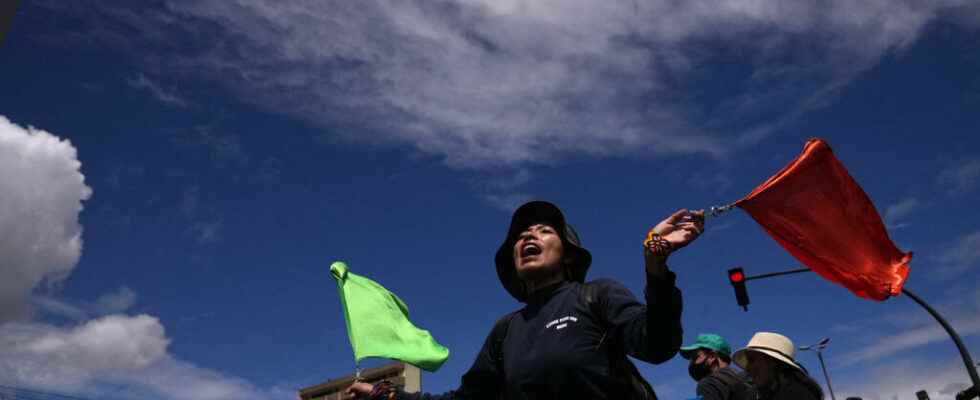After thirteen days of general strike in Ecuador, Parliament met on Saturday June 25 to study the possible dismissal of liberal President Guillermo Lasso, who is accused, among other things, of his economic policy which would have impoverished part of the Ecuadorian people. The president is also being criticized for his response to the protests, which has so far been inflexible.
With our correspondent in Quito, Alice Campaignolle
A single point on the agenda of the parliamentary session n°782: the dismissal of the president for “serious political crisis” after more than ten days of general strike to denounce the high cost of living in particular. Protests violently repressed by the police, at least five people died among the protesters.
This constitutional mechanism would allow Parliament to push President Guillermo Lasso out, but, as he expressed through his legal secretary Fabian Pozo, there is nothing legitimate about it, according to him: “ Any democrat should reject the request made by these parliamentarians because what they seek to do is to hijack a constitutional mechanism of political control for the sole purpose of destabilizing the country “, did he declare.
Lasso loosens the noose
Yet despite those words, for the first time on Saturday the president backed down in his confrontation with protesters, from indigenous communities for the most part, by abrogating the state of emergency he had imposed in six provinces of the country.
Parliamentarians now have three days to decide whether or not they want to dismiss their president and organize new presidential and legislative elections. However, there is little chance that the dismissal will be voted on since it would take two thirds of the votes of Parliament and the opposition is divided on this point.
►Also read: In the spotlight: the impossible dialogue in Ecuador
